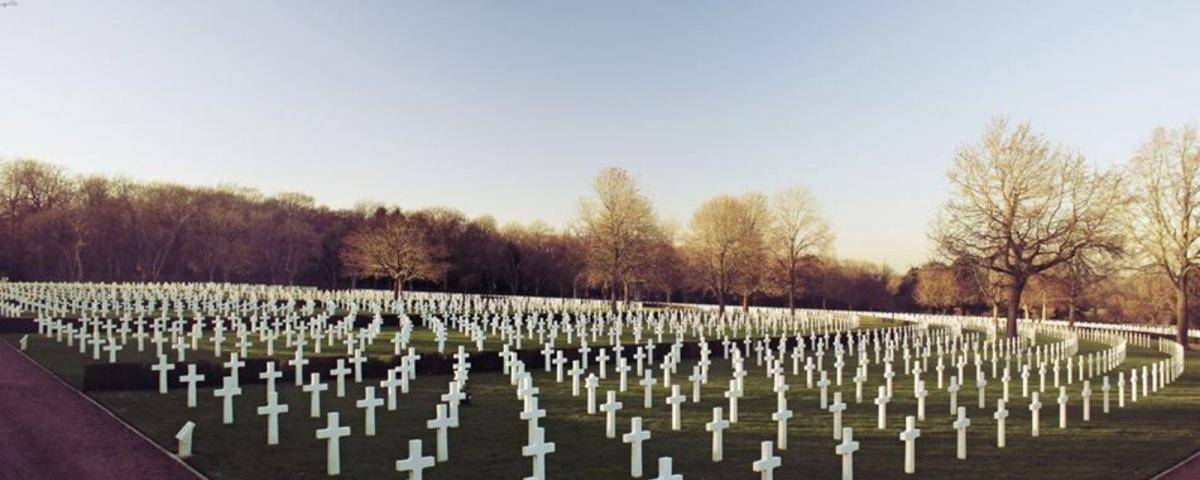
When your mother asks you about Social Media Marketing…
10. January 2018– Commentary by the Chancellor –
Peace – how can you value it if you never encountered war?
And by war I do not mean what we might consider as being the hardships in our daily lives – like the atrocities of the rush hour traffic, the crowded waiting line in front of a bus stop on a rainy day, or the discussion you had with your fiancée because they forgot the anniversary. No, I am talking about real war. For that will always be the orientation point for peace.
One of the big challenges for hospital staff is to assess the degree of pain a patient is suffering from. As there is no common standard for pain – each individual has a different perception – medics have to find an approach to scaling an individual’s experience. The simple solution is to ask the patient to self-assess his or her pain on a scale from 1 (weakest) to 10 (strongest). This then gives the hospital staff an orientation point from which they can assess the gravity of the situation.
If you apply this to hunger – how hungry are you on a scale from 1 to 10 – probably most of us will give it a 10 after a long hike in the mountains and four hours of not being fed: “OMG – I’m so hungry I could eat an entire cow.” But if you go to sub-Saharan Africa, to a region that has been suffering from a drought, that what we would consider a 10 is probably more like a 5, if not a 3. The orientation point is seriously different.
Now do yourself a favor – apply this scale to peace.
Unless you are from a region that has been exposed to war and probably after having had a glimpse at the news in the last year you are convinced that the entire planet is on fire and World War III is on your doorstep. Undoubtedly, this is the picture you get if you follow the media, but if you are interested in facts, read what Harvard professor Steve Pinker has to say.
Believe or not from a factual point we live in very peaceful times compared to the past.
Defining war is therefore somewhat ambiguous. If you take the simple dictionary definition – a conflict carried on by force of arms, as between nations or between parties within a nation; warfare, as by land, sea, or air (https://www.dictionary.com/browse/war) – it does not sound too bad. But that does not really tell us what war really is and what the implications for civilians are.
So let us put in perspective – War has four different levels:
– Level One – it gently impacts your normal life. Even when you are not directly exposed to it yet, probably products and services you take for granted are either rationed or not available. Simple stuff, like toilet paper becomes a valued commodity and friends and family members have joined the armed forces.
– Level Two – the impact on your normal life gets stronger. Water and gasoline are rationed and you are hearing about distant friends or distant family members that have been injured in battle. There are rumors that people have died, but luckily for now only strangers. Communicating with friends becomes difficult as communication lines are breaking down. Schools and businesses are being closed down.
– Level Three – the first armed confrontations are happening close to you. You hear combat and civil life is now dictated by martial law. Electricity and water are irregularly available and shops are running out of merchandise(food). Normal life as you know it ceases to exist. People you know have died in combat.
– Level Four – you are engulfed by combat. Buildings around you have been destroyed – close family members have died. Information about what is going on is a slur between gossip, rumors and official news (propaganda). Survival has become your main concern and regular life does not exist anymore. Death is lurking around every corner and the death toll among family and friends drives you tears all day and night.
So now that we have established your point of orientation – how about rating how much you value peace on a scale from 1 (no, I want war) to 10 (yes, I value peace very much).
Hopefully your rating now is a 10 (if not, simply surf the internet and take a look at pictures of war zones and then imagine your hometown and family home destroyed).
But what has all this got to do with a business school, you might ask?
A good question. We at NEC have a strong belief that all educational institutions play a big part in eradicating war from the future of the planet.
Education not only provides an opportunity to envisage and plan for a better world in a theoretical sense it also offers a very real opportunity for all of us to live and work together with people of different backgrounds and cultures, building respect and tolerance through study and friendship. In terms of business, we must all admit that commerce and industry have had their part to play in wars of the past but that is not the fault of business as a concept.
At the NEC we feel that all of us now have a chance, no, let’s go further, we all have the responsibility to promote the values of ethical free trade and ecologically sound production to ensure that the value of peace will become higher than the profit of conflict.




